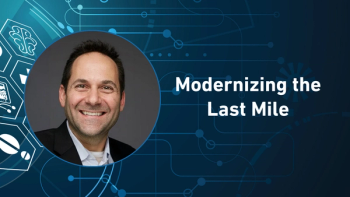
- Pharmaceutical Commerce - September/October 2010
Forces of Change for Pharmaceutical Wholesalers
Just as the pharma industry is feeling price and margin pressure, so are wholesalers in today’s healthcare marketplace
The U.S. drug wholesaling industry is evolving faster than ever. Total revenues from the drug distribution divisions of the Big Three wholesalers were $257.1 billion in
calendar year 2009, up 4.6% versus 2008. The biggest wholesalers are positioning themselves as indispensable intermediaries in the supply chain and staking out a powerful position in high-growth channels for specialty drugs. Pharmaceutical manufacturers must understand these evolutionary forces to negotiate and collaborate successfully with pharmaceutical wholesalers.
Here are six significant trends that will affect the drug wholesaling industry during the next five years:
Consolidation of the Pharmacy Industry—Independent pharmacies are strategically important and profitable to wholesalers despite representing only 16% of wholesalers’ total sales. The ongoing consolidation of the pharmacy industry will continue to pressure wholesaler profit margins from drug distribution. Larger chains and mail-order pharmacies, which have much lower profit margins on brand-name drugs for wholesalers, continue to grow faster than other segments of the market. Consolidation also hurts wholesalers because large, self-warehousing customers bypass wholesalers to purchase more-profitable generic drugs.
Slowdown in U.S. Pharmaceutical Spending—Revenues of drug wholesalers are linked to growth in prescription drug spending rather than overall economic cycles. As such, the projected slowdown in U.S. drug spending will keep wholesaler’s revenue growth rates below historical levels. Although the slowdown in U.S. prescription drug spending will reduce drug wholesalers’ revenue growth, the additional profits from generic drugs will cushion the profit impact on wholesalers.
Pressure on Generic Profitability—Although wholesaler revenues are linked most closely to sales of brand-name drugs, the majority of wholesaler profits come from generic drugs. Pressure on pharmacy profits from generic drugs is rising as payers learn more about channel economics, implement new payment benchmarks and use novel cost-plus contracting strategies. The retail prescription price war launched by Walmart also threatens the overall profitability of generic prescriptions for pharmacies. Drug wholesalers will face margin pressure on generic drug sales because pharmacies will be more price sensitive and require bigger discounts to remain competitive. Discount generic programs are shifting retail market share away from wholesaler-supplied dispensing channels into self-warehousing retailers.
The Battle for Control of Specialty Drug Spending—The complex channels for specialty drugs make it hard for payers to get full visibility on specialty drug spending or to manage drug utilization effectively. Drug wholesalers and specialty distributors play the biggest role in the distribution of specialty drugs to healthcare providers, but wholesalers have a more limited role in the distribution of self-administered specialty products to specialty pharmacies. Some pharmacy benefit managers (PBMs) are developing services
that shift responsibility for specialty drug management from the medical benefit to the pharmacy benefit. If successful, these programs will reduce the importance of specialty distribution channels by reducing the influence of physicians in the purchase decision.
Manufacturer Consolidation and Value of Fee-For-Service Agreements—Recent mergers of brand-name pharmaceutical manufacturers could reduce wholesaler payments under fee-for-service agreements. The consolidation of manufacturers is generally negative for wholesalers because a larger drug maker would have additional leverage in a fee-for-service negotiation.
Supply Chain Regulation and Compliance Costs—Wholesalers must comply with a range of state and Federal regulations regarding the supply chain. There is substantial uncertainty regarding both future regulations as well as the potential impact on wholesaler business practices and operating costs.
© 2010 Pembroke Consulting, Inc.
ABOUT THE AUTHOR
Adam J. Fein, Ph.D., is president of Pembroke Consulting and author of the popular and influential Drug Channels blog (http://www.DrugChannels.net). This article is adapted from his new 2010-11 Economic Report on Pharmaceutical Wholesalers, available at http://www.pembrokeconsulting.com/wholesale.html.
Articles in this issue
over 15 years ago
National illicit-drug use rose by 9% in 2009, say fedsover 15 years ago
ISPE issues a white paper on supply chain securityover 15 years ago
Medco Will Acquire United BioSource Corp. to Guide Safe andover 15 years ago
Reverse Logistics Providers Upgrade Their Service Capabilitiesover 15 years ago
The Path Ahead for Enterprise ComputingNewsletter
Stay ahead in the life sciences industry with Pharmaceutical Commerce, the latest news, trends, and strategies in drug distribution, commercialization, and market access.




